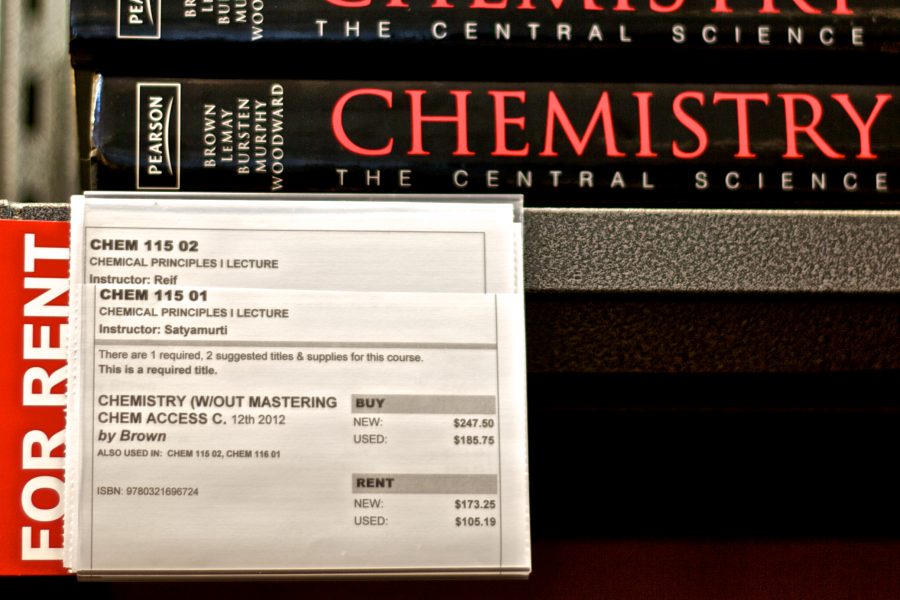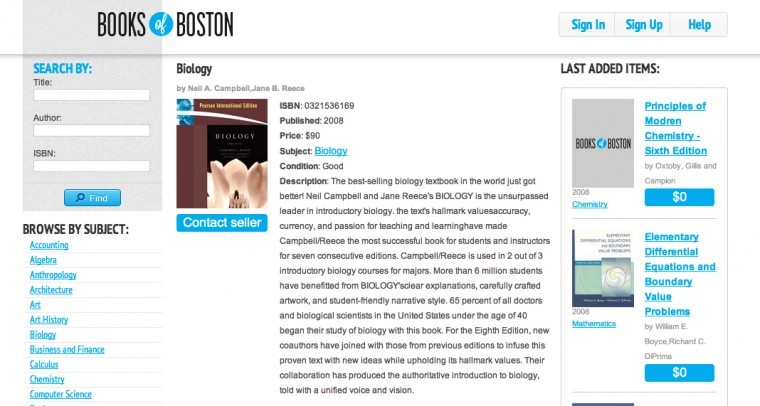As we all know, the cost of higher education is high. Textbooks are a major component of that cost, amounting to roughly $700 to $1,000 per year for an average student. Over the course of four years of college, that is as much as $4,000. For this reason it is well worth the effort to comparison-shop when you are trying to purchase your textbooks.
Book costs have risen significantly in the recent past. A 2004 study showed that they had soared 186 percent between 1986 and 2004. Inflation of book prices dwarfed that of other consumer items, being by some estimates three to five times as high. The study showed that textbook costs rose roughly 6 percent yearly, twice the overall rate of inflation. This has been attributed to the fact that many students find their textbooks online. As of 2008, the number of used books sold rose 15 percent, to roughly $2 billion. Publishing companies have been forced to charge higher prices for their books as they’ve lost their market share.
Various publishing trends have also fueled this rise in book costs. One of these is the practice of bundling, where a publisher includes extra materials along with the textbook, such as a subject website password, a CD-ROM, or a workbook. After the landmark Higher Education Opportunity Act (HEOA) went into effect in 2010, bookstores and publishing companies have been obliged to sell these components separately. Still, some professors insist on having students purchase these bundles.
Another reason for the high cost of books is the fact that publishers will frequently come out with new editions—this of course costs the student more, and also ensures that the bookstore will not buy back the older edition. The HEOA tries to address this by insisting that any new edition of a textbook contain a substantial amount of new material.
At one time, bookstores had a virtual monopoly on book pricing. But, due to the high cost of books, several mostly online textbook businesses have opened up in recent years, offering savings of 14 to 75 percent. You can search by subject, title or ISBN number, and some sites even allow customers to buy, rent or sell books.
One online solution has been offered by UMass Boston business major Melkon Yezdoghlyan. He developed booksofboston.com, which he called a “Craigslist for textbooks” where Boston students can buy and sell books from each other. He explained, “Students can become members of the site and then post books, prices and descriptions. The idea is students will be able to sell their used books for more than the bookstore will buy them back for, and students will be able to buy books for less than they would at the bookstore.”
Yezdoghlyan makes no money from the website but started it simply because he was fed up with the high cost of textbooks. He said, “Right now there are not a lot of members, but hopefully people will learn about the site and more and more people will begin selling books. It should be a win-win for both the seller and buyer.”






















































